How You Deal with Uncertainty, Based On Your Myers-Briggs® Personality Type
Table of contents
- The ENFP – Find the possibilities in it
- The ENTP – Brainstorm
- The INFP – Analyze
- The INTP – Gather Information
- The ENFJ – Bring People Together
- The ENTJ – Find Answers
- The INFJ – Sort Through Perspectives
- The INTJ – Strategize
- The ESFP – Re-Frame the Problem
- The ESTP – Find Some Control
- The ISFP – Look for Hope
- The ISTP – Observe
- The ESFJ – Nurture and Organize
- The ESTJ – Set Immediate Goals
- The ISFJ – Nurture Yourself and Others
- The ISTJ – Chart a Plan of Action
Estimated reading time: 19 minutes
The ENFP – Find the possibilities in it
Everyone needs to strap into their seatbelts because…
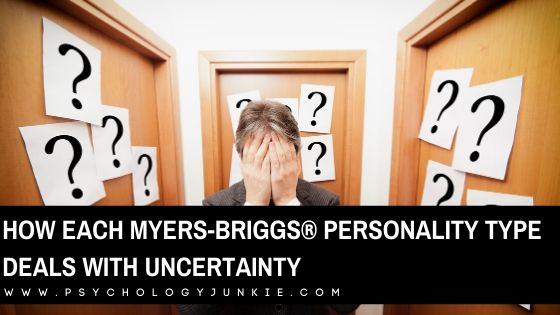

Your mind comes alive during uncertainty. Some of your solutions will be off the wall (“Hey! Maybe this hairbrush will solve all our problems!”) Other solutions will be perplexingly ingenious. You handle uncertainty better than many other types because you’re so fond of change and innovation. When other people see nothing but closed doors, you’re the type who sees the window. In the midst of chaos you enjoy brainstorming to find unique solutions and perspectives. When you feel uncertain, you’ll generate possibilities, options, and alternatives so that you don’t feel trapped. However, if stress increases to an extreme degree, you may suddenly lose this ability. Rather than being a juggler with several balls in the air at once, you’ll develop tunnel vision and become hyper-focused on routines, structure, and nitty-gritty details. If this is happening to you, you might be experiencing “grip” stress. You can find out more about that here: What ENFPs Do When They’re Really Stressed Out.
The ENTP – Brainstorm
A natural problem-solver, you use uncertainty as an opportunity to think outside the box. You’ll absorb information, read news stories, look at all the facts, and then brainstorm your options. You’ll bounce ideas around with your friends, sort through perspectives, and come up with innovative solutions. The chaos will be stressful but exciting – to the point where it might feel like you’re drowning in possibilities. You’re more comfortable with uncertainty than many types, but you may not realize the unconscious stress you’re accumulating in your body. When that stress does accumulate, you’ll reach this point…

If uncertainty reaches a point where the stress has become extreme, you may lose your typical optimistic nature. Suddenly, you may see no options but failure. Your vision will become narrowed and the possibilities will feel out of reach. You may become hyper-focused on your body and its signals. If you’ve neglected your body during the first phase of uncertainty, now you will worry about the fallout from that neglect. This is an important time to get alone, rest, hydrate, eat a healthy meal, and assess your physical needs. It’s also an important time to reach out to the people you care about (unless you’re maintaining a distance, then just set up a Zoom call).
The INFP – Analyze
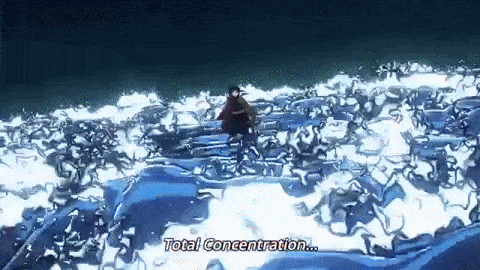
When uncertainty is looming it can be easy for you to feel like your foundations are wobbly. During these times you retreat from the world and try to create a safe haven for yourself somewhere. You analyze the situation at hand, consider how you feel about it, analyze the reasons for the uncertainty, and try to find a way to make peace with it. As an Intuitive Perceiving type, you are better at handling uncertainty than some. More flexible than most, you try to think outside the box for ideas that could inspire you or bring you hope. At the same time, you remember the things that make you feel safe. You might listen to your favorite songs on repeat, re-read your favorite stories, or light some candles and draw pictures in your room. For you, it’s crucial to create inner peace and harmony even if the outside world is ever-changing and shifting.
If uncertainty reaches a point where your stress has become extreme, you may lose your typical gentle and calm nature. Suddenly, all you can see are flaws and errors all around you. People seem undependable and you feel a compulsion to fix things and get tasks accomplished. You might become more critical, sarcastic, and cynical than usual. If you are experiencing this, it may mean that you are having a “grip stress” reaction. You can find out more about that here: 12 Stress-Busting Tips for INFPs.
The INTP – Gather Information
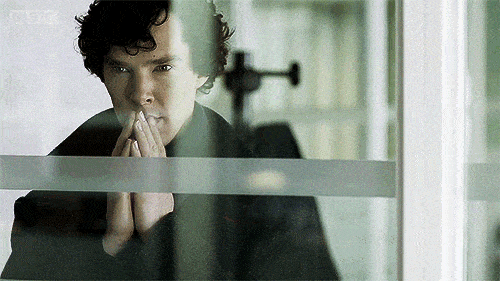
You believe that the key to dealing with uncertainty is having more information. When life feels shaky and unpredictable, you focus on gaining knowledge and data. What are the facts? What are the studies? What theories can you work with and decipher? You’ll research the conventional and unconventional data, laugh off conspiracy theories, ponder others, and try to face the truth as plainly as possible. You’re a seeker for truth at the end of the day, and you’ll cut through denial in order to get the most accurate possible solution. Your search for solutions can be time-consuming and energy-draining, so you might mix it up with reading books, playing strategy games, or watching your favorite movies.
If uncertainty becomes chronic and/or extreme, you may lose your typical calm and composed nature. Suddenly, you will feel more emotional and sensitive. Things might make you lose your temper faster than usual, or you may crave more positive human interaction and comfort than usual. If this is the case, you might be experiencing “grip stress.” You can find out more about that here: How Each Myers-Briggs® Type Reacts to Stress (and How to Help!)
The ENFJ – Bring People Together

You’re someone who knows how to inspire people to see the best in every situation. You focus on the collective more than the individual, so if uncertainty is looming, you’re the one who will find a way to get people working together. Whether you’re creating online support groups or emailing inspiring quotes daily, you’ll find a way to keep peoples’ heads up during dire times. If the uncertainty only involves you personally, you’ll focus on your Intuitive side to find answers. You will get alone, spend time in quiet contemplation, and possibly jot your thoughts down in a journal. You have a sense that the universe might provide the answer if you just wait patiently enough.
If uncertainty becomes chronic and/or extreme, you may lose your typical warm, gregarious nature. You’ll feel more reclusive, critical, and obsessed with minor flaws in your thinking. You might get stuck in analysis-paralysis or feel overwhelmed and irritated by interactions with people. If this is happening, you might be experiencing “grip stress.” You can find out more about that here: What ENFJs Do When They Get Really Stressed Out.
The ENTJ – Find Answers
When uncertainty strikes, you armor yourself with resilience and knowledge and prepare for battle.
Kinda like this guy…

Uncertainty is simultaneously exciting and irritating to you. You like having answers, conclusions, and goals to work towards. You’ll turn the uncertainty into a challenge you have to overcome. You’ll organize all the facts, consider all the underlying implications ad possibilities, and look for an innovative strategy. You’ll tap into your intuition if a solution isn’t quickly determined. You might become more reclusive, contemplative, and focused on your inner thoughts and musings. If an answer doesn’t appear quickly, you might experience “grip stress.” During these times, your rational mind feels like it has failed you. You become irritated and resentful that no solutions are coming to you. You’ll become more emotionally sensitive, easily offended, and angry. You might feel abandoned, overworked, and reactive. You can find out more about this here: Here’s What Each Extroverted Myers-Briggs® Personality Type Needs When They’re Stressed.
The INFJ – Sort Through Perspectives
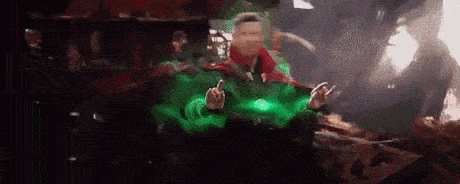
As an INFJ, you pay attention to patterns and trends. You often grasp potentialities before other types do, noticing implications and getting a sense of what will happen. Uncertainty is something you despise most of the time because it feels like you’ve failed to anticipate well enough. You like having a sense of closure and certainty about what is going to happen. In order to deal with this, you usually will retreat from the outside world. In the peace and quiet, you can rest with your thoughts and look inward for solutions. What can you learn from this uncertainty? What patterns might you have missed? Are there any symbols or implications that could be positive? You’ll spend more time in thought, but you may also reach out to trusted friends for support and a sense of community. Knowing you’re not in it alone is a huge comfort to you.
If uncertainty and stress reach extreme levels, you may flip a switch and become more rash and indulgent than usual. You might impulsively blurt out rude things, overeat, drink too much, or furiously clean everything in your house. If you’re experiencing this, you’re likely in a state of “grip stress.” You can find out more about that here: Understanding INFJ “Grip Stress”
The INTJ – Strategize
More than anything, during times of uncertainty, you just. want. quiet.
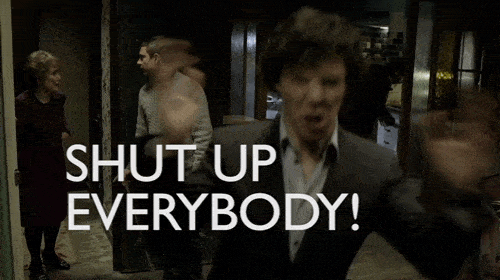
You’re determined not to be overtaken by insecurity. You’ll find answers, strategies, and solutions if it kills you. You’ll turn off the TV, silence your phone, and lock your doors. You know that looking inwards is the best way to calm your thoughts enough to find a strategy or insight. You’ll map out options, look at the facts, and reverse engineer your way towards a solution you can live with. You’ll find some way to find security in the midst of the chaos. Even if that certainty is as simple as knowing what your next single step is. With a goal forever in front of you, you’ll stay focused.
If uncertainty and stress reach extreme levels, you may become overwhelmed by “grip stress.” During these times, you might suddenly lose your far-reaching vision. You’ll become more impulsive, indulgent, and reactive. You might overeat, binge Netflix, or engage in risk-taking behavior that is unlike you. You can find out more about this here: 12 Stress-Busting Techniques for INTJs.
The ESFP – Re-Frame the Problem
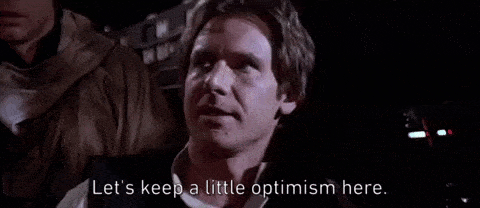
Resourcefulness and optimism are your guiding lights during uncertainty. When things feel chaotic and uncertain, you focus on what you have in your immediate vicinity. What can you do with it? Can you rig up a solution with the tools you have readily available? Is there someone you can call who might offer some good advice? If no solutions seem readily apparent, you’ll find a way to have a good time in the midst of the storm. You’re the kind of person who’ll be roasting marshmallows during an apocalypse and blasting your favorite songs. Making the most of a stressful situation is one of your greatest skills.
If uncertainty is prolonged to an extreme degree, you may start to succumb to its power. When this happens, you may become more gloomy than usual. The future will seem bleak and you will lose your typical optimistic nature. Rather than seeing immediate resources, you’ll focus on long-range future possibilities that all seem hopeless. If you’re experiencing this, you may be experiencing “grip stress.” You can find out more about this here: Here’s What Each Extroverted Myers-Briggs® Personality Type Needs When They’re Stressed.
The ESTP – Find Some Control
The first rule of dealing with uncertainty? Let’s take a tip from Zombieland.
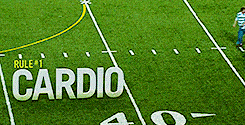
You’re a high-energy, resourceful type and you’re determined that uncertainty won’t dismantle your goals. Finding constructive outlets for your energy while trying to problem solve is crucial to you. You might go for a run while analyzing the problem in-depth. You might do push-ups or blast heavy rock music while internally looking at the options and weighing the various perspectives. You deal with chaos better than many types because you’re skilled at thinking clearly in a crisis. That said, if uncertainty reigns for a prolonged period of time, you can become irritable and restless.
If stress and uncertainty seem endless, you may experience a state of “grip stress.” When this happens, you’ll lose your normal optimism and high-energy resourcefulness. Suddenly all you will say are hopeless options and negative future scenarios. You’ll fixate on patterns and eerie, mystical thoughts. You can find out more about this here: Here’s What Each Extroverted Myers-Briggs® Personality Type Needs When They’re Stressed.
The ISFP – Look for Hope

You know that you can only control your own responses to what’s happening around you, so you’ll seclude yourself with your own thoughts. Everyone else can panic and go crazy, you’re going to focus on your own feelings and calm your mind. In the silence, you can focus on what’s important to you, what you need, and look for some hope in the chaos around you. You’ll look for immediate needs that you can handle on your own – Does someone need a hug? Does dinner need to be made? Would the right song focus your perspective in the right direction? You’ll look for hope by focusing on one step at a time.
If uncertainty becomes too stressful for too long, you can experience “grip stress.” When this happens, you’ll lose your typical easy-going, gentle nature. Instead, you’ll fixate on projects you need to finish, correcting errors, and righting wrongs. You might be more critical, cynical, and sarcastic than usual. You can find out more about this here: Here’s What Each Introverted Myers-Briggs® Personality Type Needs When They’re Stressed
The ISTP – Observe
This is how you’d like to deal with uncertainty:

Unfortunately, chaos doesn’t always come in the form of physical combat. Either way, you’re someone who notices everything happening around you. During periods of uncertainty, you focus on the clues you’ve collected from the world around you. Rather than hypothesize about all the bad things that could happen, you’ll focus on what you KNOW is real. What can you do with the facts? What tools can you use to fix the situation? Is the best option to just distract yourself until more information becomes available? If so, then that’s what you’ll do. You’re not going to jump the gun and react rashly or emotionally. You’re going to make sure you move forward only when you have enough facts to make a sensible decision. You deal with chaos and uncertainty better than many other types because you don’t need a secure structure to be happy. As long as you’ve got your autonomy and freedom you know you’ll find a solution.
If uncertainty or stress extends for too long, you may experience a “grip” stress reaction. When this happens, you’ll become more emotionally reactive and sensitive than usual. This is extremely frustrating to you because you’re somebody who prides yourself on being calm and unaffected. You can find out more about this here: Here’s What Each Introverted Myers-Briggs® Personality Type Needs When They’re Stressed
The ESFJ – Nurture and Organize

Organized and structured, uncertainty is especially hard on people with your type. You thrive when you have a plan and a clear set of rules to follow. Thorough and sensible, you like organizing your days so that every detail is taken care of on time. Uncertainty can make you feel queasy and more irritable than usual. That said, your first thought doesn’t tend to be yourself. You tend to focus initially on the needs of the people around you. How can you make the uncertainty more manageable for your loved ones? Tending to practical needs will give you a sense of control. You might clean the house inside out or make five dozen muffins (just in case). You’ll organize what you can so that you can gain some semblance of structure in your life. If the people around you are handling the uncertainty calmly then this will help you to feel more peace inside.
If stress mounts to extreme levels, you might experience a “grip” reaction to everything that’s happening. When this happens, you become more reclusive, self-critical, and focused on correcting minor errors. You might get lost in analysis-paralysis or be quicker to offer criticism. You can find out more about this here: 10 Stress-Busting Tips for ESFJs.
The ESTJ – Set Immediate Goals
You’re someone who prides yourself on being prepared and organized. When uncertainty is on your doorstep, your first instinct is to close the door and say “Good Riddance!”

You’ll try to solve problems, organize a plan, and find answers – even if they’re just temporary quick fixes. On the outside, you seem like someone who’s got it all together. You’re productive, focused, and methodical. On the inside, you probably feel more stressed and anxious than you let on. You hate change and sudden, unexpected surprises. Uncertainty takes its toll, but you don’t typically show your anxiety to the people around you.
If stress and uncertainty are prolonged, you might experience “grip” stress. When this happens, you become more emotionally reactive and sensitive than usual. You might get lost in hopeless thoughts or feel that you’ve been abandoned and have to take care of everything yourself. You can find out more about this here: How Each MBTI® Type Reacts to Stress (and How to Help!)
The ISFJ – Nurture Yourself and Others
When dealing with uncertainty, on the outside you might seem calm, congenial, and concerned for other people. But inside, you kinda feel like clutching your teddy and hiding under the covers.
Kinda like this guy…

You’re someone who thrives on security, stability, and a sense of order. Uncertainty takes a huge toll on your psyche, but you may not immediately show it to others. As a way to cope, you may retreat into a quiet space where you can compose your thoughts and feelings. Nurturing yourself with comforting rituals helps you to feel calmer. Drinking hot tea, meditating outside on the grass, or re-reading a favorite book can help to soothe your soul. You also tend to nurture the people you love. You’ll call up your mom and ask her how she’s doing, or ask her for advice. You may focus your efforts on helping others during an uncertain time – focusing on what you CAN do rather than what you can’t. If stress is chronic, you may feel overwhelmed and isolate yourself in your house until the feeling subsides or you find a solution.
If stress is extreme, you may experience a “grip” stress reaction. When this happens, you may feel like you’re inundated with negative possibilities. The future seems bleak and all you can do is replay negative scenarios in your mind. You can find out more about this here: How Stress and Change Affect the Routine-Loving ISFJ Personality
The ISTJ – Chart a Plan of Action
You look on uncertainty with a calm exterior, but inside you’re more like this:

Yeah, uncertainty is something you despise with a passion. You like life calm, planned out, and organized. Chaos and disorder make you queasy and irritable. But that’s not what everyone around you will see (except maybe your significant other). You’ll make charts, diagrams, research options, and focus on mapping out a solution. You’ll shut the door and yell at anyone playing music. You need total concentration when life feels unpredictable. Until you have a solution, even if it’s just the next several steps in a plan, you’ll fixate on analyzing the problem and how to circumvent it.
If stress is extreme, you might experience a “grip” reaction. When this happens, all your brainstorming will only wreak havoc on you. You’ll only see negative possibilities and doom and gloom everywhere. You’ll feel abandoned, listless, and lost in worst-case scenarios. You can find out more about this here: How the ISTJ Reacts to Stress
What Are Your Thoughts?
Do you have any suggestions for people with your personality type? Let us know in the comments!
Find out more about your personality type in our eBooks, Discovering You: Unlocking the Power of Personality Type, The INFJ – Understanding the Mystic, and The INFP – Understanding the Dreamer. You can also connect with me via Facebook, Instagram, or Twitter!


Subscribe to Our Newsletter

Want to discover more about personality type? Get the inside scoop with Susan Storm on all things typological, along with special subscriber freebies, and discounts on new eBooks and courses! Join our newsletter today!






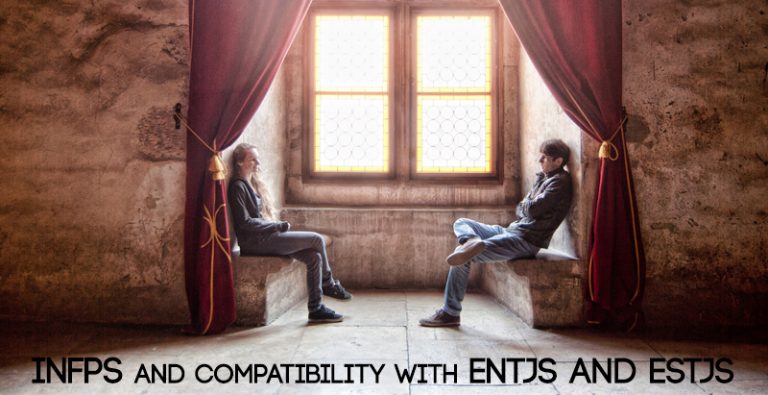
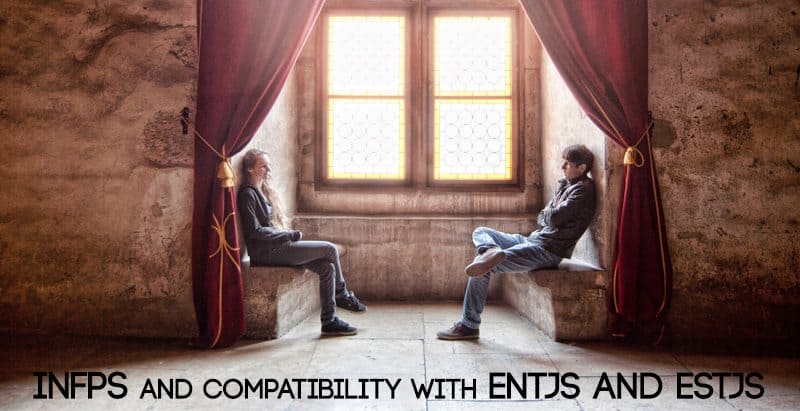
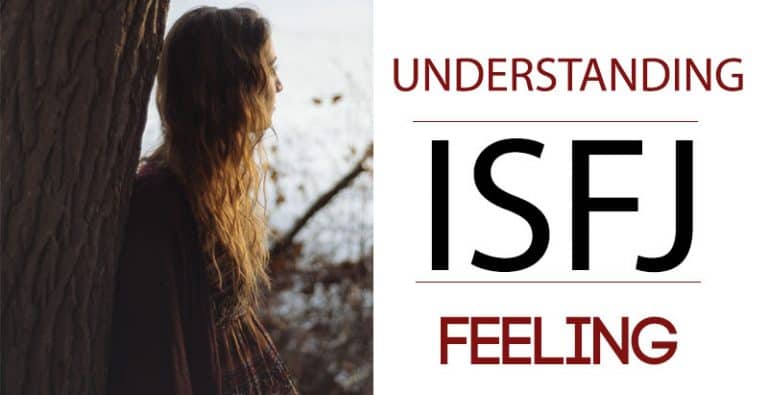
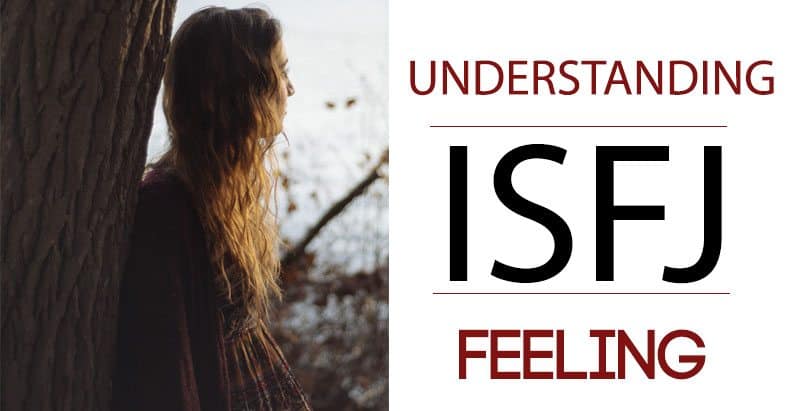
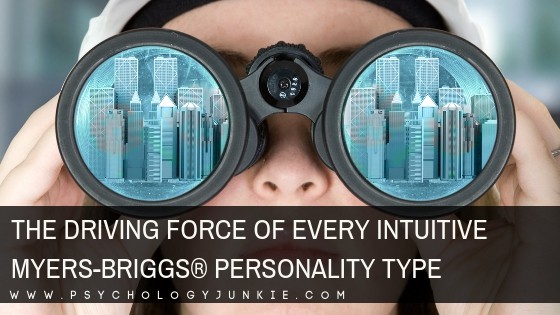
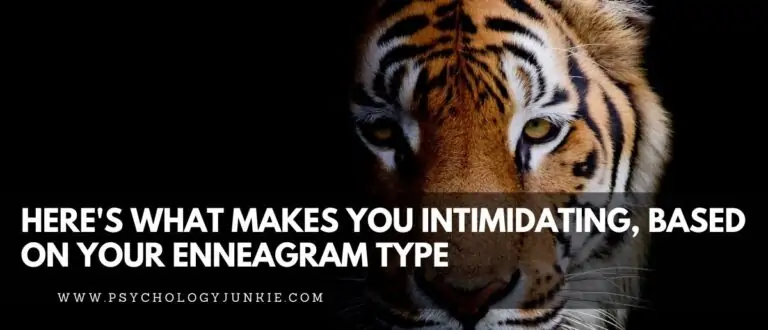
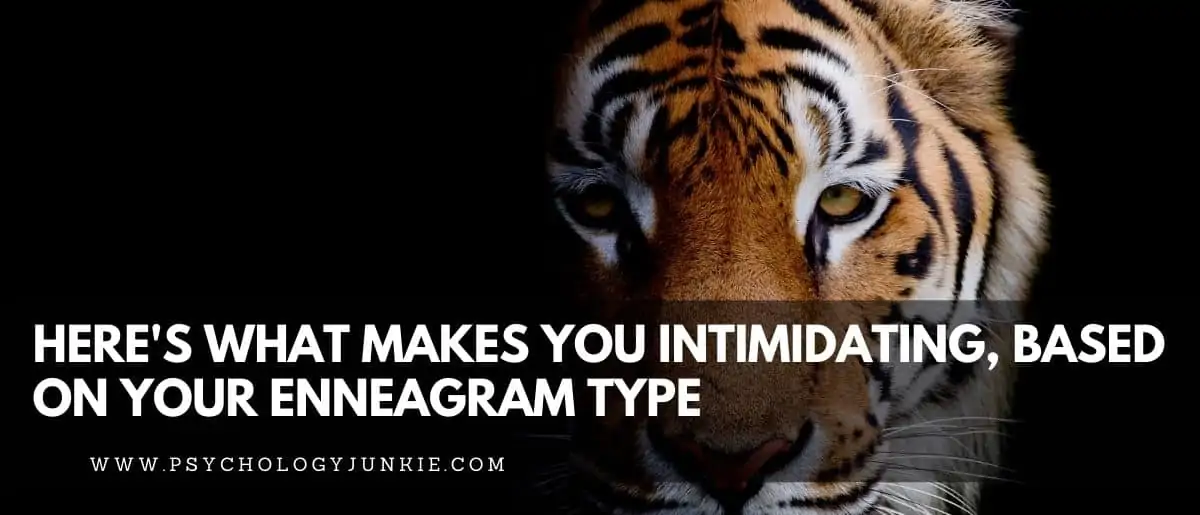
Ummm…. I think you forgot ENFP
That was the first one
Hey! I was wondering: is it possible to he none of the 16 personalities ? I’ve taken tons of tests and I think I’m an extrovert, but none of the extroverts sound like me. Also I’ve looked at all of the types and none of them are really me. So here’s my question: can a person be none of the 16 personalites? Or have I just discovered the 17th personality??
Audra, I suggest you go to Personality Hacker and look into the cognitive functions (there are 8). Each type uses 4 of the 8 predominantly. If you find out which ones sound most like you, you can figure out your type much easier than taking the tests, which are often inaccurate in my experience. The cognitive functions make up how a person prefers to learn and make decisions and can also show what that person looks like at their best and at their worst. I’m an ISFJ female and consistently struggle to relate to many of the descriptions. I’ve been researching off and on for 6 months, but the cognitive functions as explained by Personality Hacker is what finally solved it for me. I hope this helps.